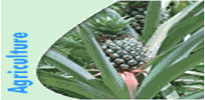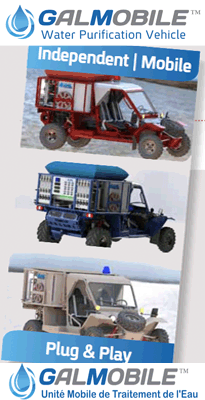Mauritania: Nouakchott City
2012/12/19

Nouakchott is the capital and by far the major city of Mauritania. It is of the major cities in the Sahara. The city is the administrative and economic centre of Mauritania.
Climate
Nouakchott features an arid climate with hot summers and warm “winters”. Because of its location, temperatures are hot for most of the year. However, Nouakchott possesses a mild temperature range compared to other cities in this climate. While average high temperatures are relatively constant at around 32 °C (89.6 °F), average low temperatures can range from 24 °C (75.2 °F) during the summer months to 13 °C (55.4 °F) during the "winter" months. Average low temperatures can be as low as 10 °C (50.0 °F) during “winter” months in Nouakchott. Average rainfall in the city is 159 millimetres (6.3 in) a year. The bulk of the precipitation typically falls within August, the month that forms the city’s very brief wet season.
Government
The town was first divided into districts (moughataa) in 1973. First it was divided into. From 1986, the city has been split into nine districts.
Arafat;Dar Naim,El Mina,Ksar,Riad,Sebkha,Tevragh-Zeina,Teyarett,Toujounine
Economy
Salt,adhesive, insecticides, rugs, carpets, embroidery, and craft products are produced in Nouakchott, with the port as well exporting copper. As of 2000, there are over 30 small or middle-sized factories in the city. Government and financial enterprises are as well significant. The airline Mauritania Airways has its chief office in the city. When Air Mauritanie existed, its chief office was in the city.
Education
The city is home to the University of Nouakchott,[21] which is the only university in Mauritania and was opened in 1981. Approximately 8000 students study there, and it has a considerable impact on the city, according to some[who?]. Other higher education facilities include the National School of Government, and the National Institute of Advanced Islamic Studies. There are a lot of primary and secondary schools, part the majority prominent are the American International School of Nouakchott[22] and the Lycée Français Théodore Monod school.
- Related Articles

safewater
2015/11/12 Gal Water Technologies Ltd. is backed by 20 years of experience in supplying water treatment systems for Industrial, Agricultural and Consumable water.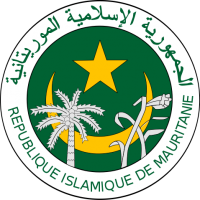
Mauritania Outlook for 2015-17
2015/11/01 The country (Mauritania) is situated in Northern Africa, bordering the North Atlantic Ocean, between Senegal and Western Sahara. The country has borders with Algeria 463 km, Mali 2,237 km, Senegal 813 km, Western Sahara 1,561 km. The government's economic policies to placate protesters have been met with a mixed reception. Anecdotal evidence suggests that a food subsidy programme launched by the government in January, Operation solidarite, has been under-utilised and has facilitated corruption.
The friendly relations between the People's Republic of China and the Islamic Republic of Mauritani
2015/10/01 In 2013, the friendly relations between the People's Republic of China and the Islamic Republic of Mauritania continued to advance steadily with fruitful exchanges and cooperation in various fields.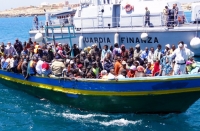
North Africa: EU Not Showing 'Political Will' Over Migration Crisis
2015/08/07 The 28-country European Union has told member states that expressing regret over the new migrant tragedy was no substitute for action. Some 200 migrants were feared drowned at the same time as their vessel sank off the Libyan coast. One NGO helping to save shipwrecked migrants in the Mediterranean Sea is the medical charity Doctors Without Borders. DW has been talking to the chief of their German section, Florian Westphal.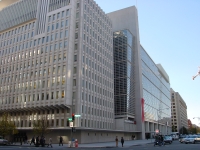
The World Bank fails to credit the intelligence of the world’s poor
2015/01/31 At the same time as a statement by the world’s most influential development agency provides evidence that a lot of of its staff are “biased” in their perceptions of the poor and their needs, one may expect eyebrows to be raised. At the same time as the president of that institution — the World Bank, no less — acknowledges the flaw and goes on to call for “measures to mitigate these biases, such as additional rigorously diagnosing the mindsets of the people we are trying to help”, jaws should be dropping.
- Mauritania News
-
- BOTSWANA: Routes Africa forum aims to improve African air connectivity
- BOTSWANA: Economic integration is helping boost trade and investment in Africa
- BOTSWANA: Africa’s economic growth is likely to be slower in the intervening years
- BOTSWANA: Beyond Commodities: How African Multinationals Are Transforming
- EGYPT: Egypt, Mauritania sign six agreements, memos
- TURKEY: Turkey to build dams in Mauritania and Senegal
- Trending Articles
-
- JAPAN: More of the same from Japanese polls next weekend
- GERMANY: VW says US 'Dieselgate' settlement not to be replicated in Europe
- PHILIPPINES: Will services continue to drive the Philippine economy?
- CONGO BRAZZAVILLE: Congo: Total abandons oil field citing decrease in global oil prices
- EUROPEAN UNION: EU meets without Britain for first time since Brexit vote
- ISRAEL: Israel's tech boom under threat


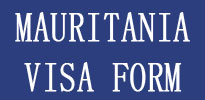

.gif?1356023993)
